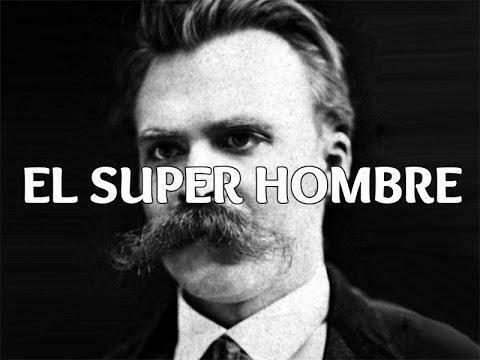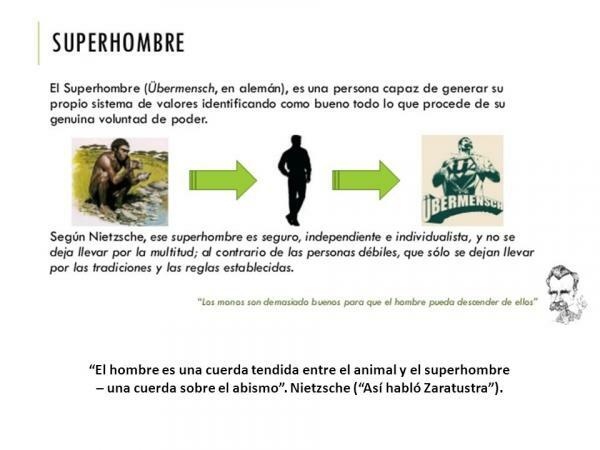Nietzsche's Superman Theory

Image: YouTube
In this lesson from a TEACHER, we will explain what is Nietzsche's Superman Theory. The Superman, is the new man, the one who arises after the death of god, that is, once it has been assumed that there is no absolute being to give meaning to life. God has died and with him all the decadent values on which Western culture is founded, and it is the same human being who has killed him.
As a consequence, the human being, shipwrecked in a sea of insecurities, with nothing to hold on to, without a foundation of morality, despairs. This is what Nietzsche calls negative Nihilism that is opposed to positive Nihilism, that is, that of the person who accepts the death of God and the loss of all Christian values, the result of platonic dualism and its division of reality.
The Superman, therefore, he is capable of accepting the death of god, from transmute all values, to rebuild where it has been destroyed. It is the moment of the superman, and with it comes the end of servant morale. It is not a question, therefore, of renouncing values, but rather of inverting them, of reversing slave morality, that denies against life and build new ones, which constitute a resounding yes against it, that is, the moral of the love.
The Jewish Christian morality supposes a denial of life, of nature, of the earth, of the body, and it is precisely what must be recovered, the sense of the land, which has been lost because of Socrates and his especially his, to his disciple Plato, who with his duplication of reality, manages to give a foundation to religion, to serve as a theoretical basis for the nonsense of Christianity, which turns the true natural values, such as love, upside down. Instead, he replaces them with resentment against life.
Today's man is a bridge, he is a transit, a path and not a goal or an end:
Man is a rope stretched between the animal and the superman - a rope over an abyss (Thus Spoke Zarathustra).
Man is something that must be overcome. This man who must be overcome is the one who continues to cling to the morality of the slave, the morality of the flock, that morality that despises life on earth and lives with the illusion of achieving immortality in the hereafter, and with that idea, stops to live. This renunciation of life is what must be overcome, to build values that imply the total affirmation of life, and not the other way around, as is the case with traditional morality. The birth of the superman is only possible with the death of God, with the acceptance of it, which leads to positive nihilism.

Image: SlidePlayer
- Reject slave morality, which extols values such as cowardice, fear, obedience, servility, resentment and contempt against life, in favor of the moral of masters, the one that bets on love, the body, the earthly, the tragic and the Dionysian.
- The moral of the slave is the moral of the herd, of those who blindly follow the established rules because they are not capable of creating their own. Instead, like the child, the superman is pure creativityHe does not need anyone to dictate values to him, because he already has his.
The superman is creator of valuesUnlike today's man, he borrows values inherited from tradition. The superman, on the other hand, builds his own scale of values and voluntarily submits to them, because these values are faithful to the earth. He is the affirmation de life, the creator and owner of his own life and his destiny.
The superman accept the eternal returnof the same, that is, the non-transcendence, the absence of purpose. Only exists The instant. There is no past, no present, no future, but becoming.
Look, I teach you the superman!
The superman is the sense of the earth. Say your will: let the superman be the meaning of the earth! I conjure you, my brothers, remain faithful to the earth and do not believe those who speak to you of super-earthly hopes! They are poisoners, know it or not.
They are despisers of life, they are dying and they are, they too, poisoned, the earth is tired of them: may they disappear!
Thus Spoke Zarathustra, Friedrich Nietzsche

Image: Slideshare



